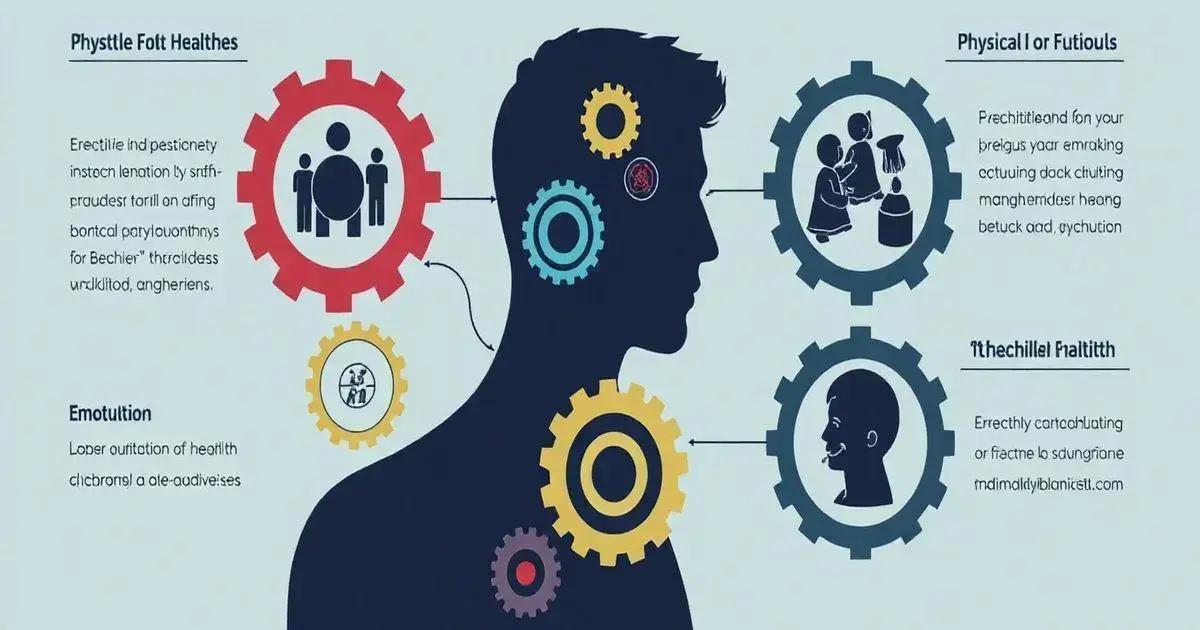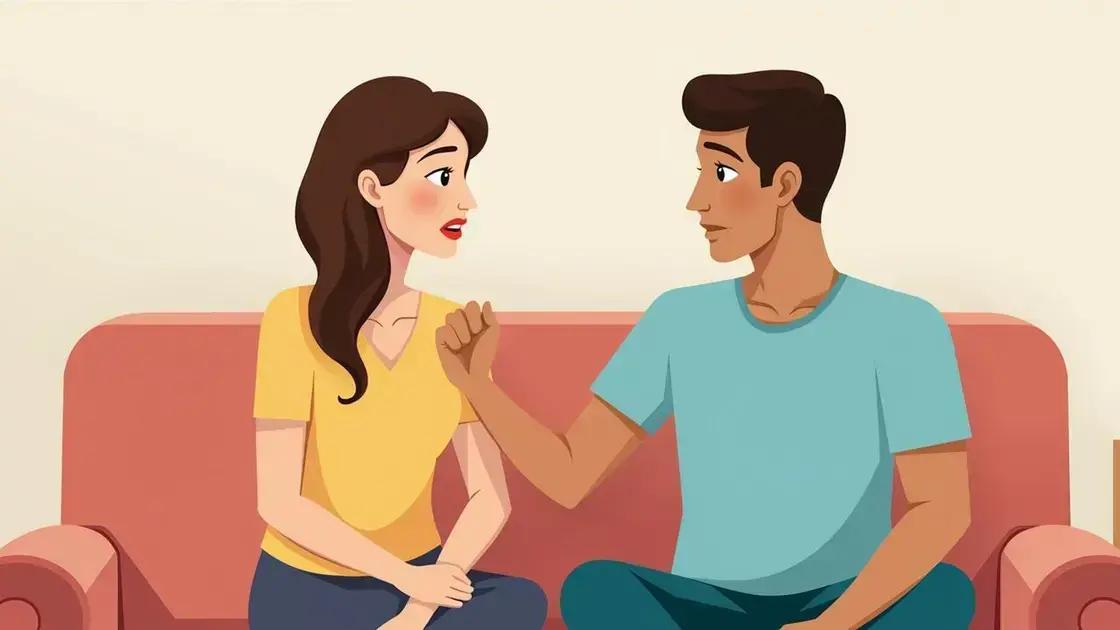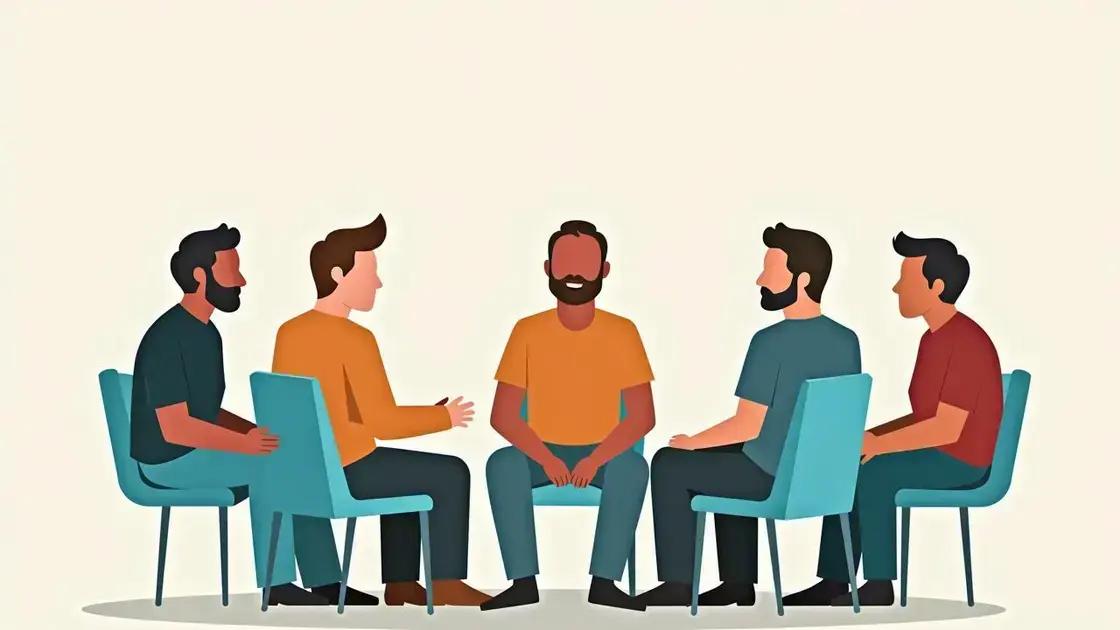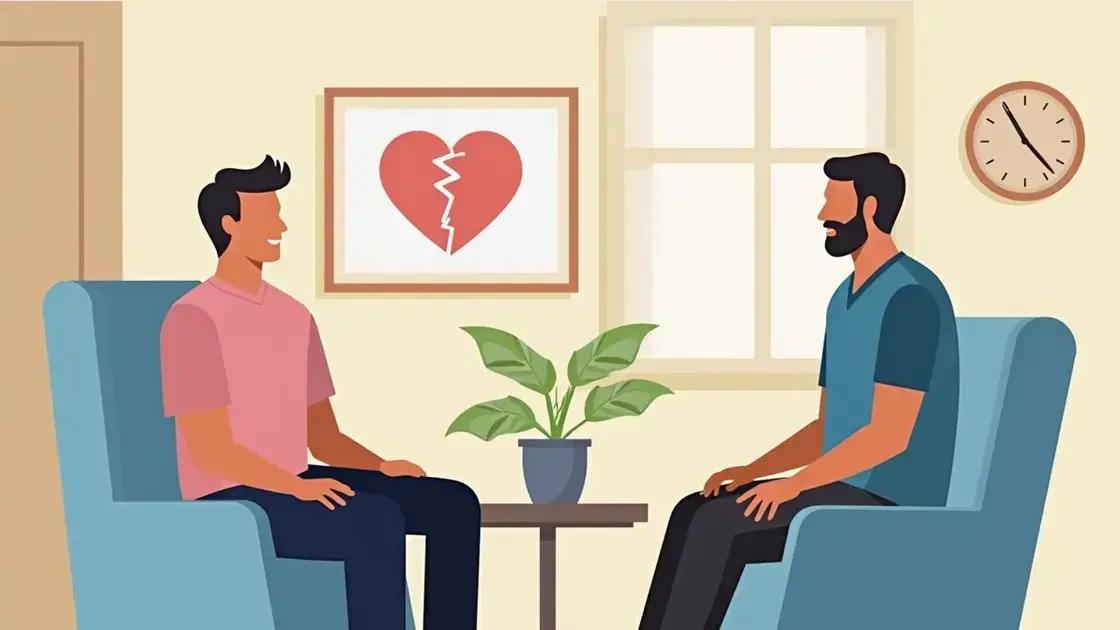Erectile dysfunction impacts social interactions and relationships by causing feelings of anxiety, embarrassment, and reduced self-esteem, often leading individuals to avoid social situations. Coping strategies such as open communication, professional help, and support groups can aid in managing these emotional effects and improving overall well-being.
Erectile dysfunction (ED) can have far-reaching consequences beyond just physical health. It often impacts social interactions and emotional well-being, affecting relationships and self-esteem. Understanding how erectile dysfunction leads to changes in social dynamics is crucial for those affected. In this post, we will delve into the emotional effects it has on relationships, the impact on social life, and potential coping strategies to navigate these challenges.
Understanding Erectile Dysfunction

Erectile Dysfunction (ED) is a common condition that affects many men worldwide. It refers to the inability to achieve or maintain an erection sufficient for sexual intercourse. The causes of erectile dysfunction can vary widely, ranging from physical health issues to psychological factors.
Physical Causes
Many health conditions can lead to ED. These can include heart disease, diabetes, obesity, and high blood pressure. Additionally, certain medications may have side effects that contribute to erectile dysfunction.
Psychological Causes
Psychological factors can also play a significant role. Issues such as anxiety, depression, and stress can impede sexual performance. It is not uncommon for men with ED to experience feelings of embarrassment, which can exacerbate the problem.
Age and Lifestyle Factors
As men age, the likelihood of experiencing erectile dysfunction increases. Lifestyle choices such as smoking, excessive alcohol consumption, and lack of exercise can also contribute to ED. Making healthy lifestyle changes can sometimes improve symptoms.
Impact on Social Interactions
The effects of erectile dysfunction extend beyond physical health, influencing social interactions and relationships. Understanding the nature of ED can lead to better communication with partners and help in seeking the right support.
Emotional Effects on Relationships

Emotional effects of erectile dysfunction can significantly impact relationships, both romantic and platonic. When a man experiences ED, it can lead to feelings of inadequacy and shame. These emotions can create a barrier in communication between partners.
Increased Anxiety
For many men, the fear of failure during intimate moments can lead to heightened anxiety. This anxiety can make the problem worse, leading to a cycle of performance issues and emotional distress. This cycle affects not only the individual but also their partner.
Strain on Intimacy
ED can strain intimate relationships, making it difficult for couples to connect emotionally. The inability to engage in sexual activities can lead to frustration and disappointment, causing partners to drift apart.
Impact on Self-Esteem
Men with erectile dysfunction often experience a decline in self-esteem. They may feel they are not fulfilling their partner’s needs, leading to feelings of guilt. This drop in self-worth can affect how they interact with their partners, further complicating the relationship.
Open Communication
It is crucial for couples to communicate openly about erectile dysfunction. Discussing feelings and concerns can help reduce anxiety and restore intimacy. Open dialogue can strengthen the bond between partners and create a supportive environment.
Seeking Professional Help
For many couples, seeking professional help can be beneficial. Therapy can provide tools and strategies to navigate the emotional challenges posed by ED. Consulting a healthcare provider can also offer solutions to manage and treat erectile dysfunction effectively.
Impact on Social Life

The impact of erectile dysfunction on social life can be profound. Many men find that ED affects how they interact with others and engage in social situations. This is often due to feelings of inadequacy associated with their condition.
Avoidance of Social Activities
Men struggling with erectile dysfunction may choose to avoid social gatherings, especially those that could lead to romantic encounters. This avoidance can lead to isolation, preventing them from enjoying important social interactions with friends and family.
Changes in Social Dynamics
ED can cause shifts in social dynamics, particularly within romantic relationships. Partners may feel frustrated or confused about the changes in intimacy, which can lead to misunderstandings and tension among friends and family.
Fear of Judgment
The fear of being judged by peers can result in reduced confidence. Men may worry that their friends will view them differently if they learn about their condition. This fear often leads to a lack of openness, which is crucial for healthy social relationships.
Impact on Friendships
While true friends should be supportive, some men may worry that ED will change how their friends view them. This concern can lead to a decrease in social interactions, causing shifts in long-standing friendships.
Community Engagement
Men with ED might find it challenging to engage in community activities, whether it’s a hobby group, sports, or social clubs. This disengagement can worsen feelings of loneliness and affect mental health, further complicating their social lives.
Coping Strategies for Affected Individuals

Coping with erectile dysfunction can be a challenging experience, but there are strategies that can help individuals manage their condition effectively. Acknowledging the problem is the first step toward developing a plan that fosters both emotional and physical health.
Open Communication
Talking openly with partners about erectile dysfunction can relieve anxiety and build trust. It is essential for both partners to express their feelings and concerns, which can help reduce misunderstandings and foster intimacy.
Seek Professional Help
Consulting with a healthcare provider is crucial for understanding the cause of erectile dysfunction. Professionals can offer tailored advice, treatment options, and support to help individuals regain confidence.
Join Support Groups
Connecting with others who experience similar challenges can provide reassurance and encouragement. Support groups offer a safe space to share experiences and coping strategies, making it easier to navigate emotional difficulties.
Healthy Lifestyle Choices
Adopting a healthier lifestyle can positively impact erectile dysfunction. Regular exercise, a balanced diet, and sufficient sleep can improve overall well-being, which might assist in reducing the symptoms of ED.
Focus on Emotional Wellness
Managing stress through activities like meditation, yoga, or journaling can help improve mental health. Focusing on emotional wellness can alleviate some pressure associated with ED, making it easier to engage in social interactions.
Seeking Help and Support

Seeking help and support for erectile dysfunction can be an essential step for many individuals. It is important to remember that seeking assistance is a strong and positive action, not a sign of weakness.
Talk to Your Doctor
Consulting a doctor is a crucial starting point. They can provide valuable insights into the causes of erectile dysfunction and suggest potential treatments. Whether it’s medication, therapy, or lifestyle changes, a healthcare professional can guide the best approach for each individual.
Consider Therapy
Therapy can be an incredible resource. Speaking with a mental health professional can help address any underlying psychological issues, such as anxiety or depression, which may contribute to erectile difficulties. Therapists can provide coping strategies and tools to improve emotional well-being.
Engage in Support Groups
Joining a support group can connect individuals with others facing similar challenges. These groups offer a safe space to share experiences, discuss feelings, and find comfort in knowing they are not alone. It can also provide new perspectives on coping strategies.
Educate Yourself
Gathering information about erectile dysfunction can empower individuals. Understanding the condition, its causes, and available treatments can lead to informed decisions about seeking help and navigating social interactions during this journey.
Involve Your Partner
Involving a partner in the process can strengthen a relationship. Communication about ED can foster empathy and understanding. Couples can attend appointments together and share the journey, making it easier to manage the emotional and relational aspects of erectile dysfunction.
In summary, understanding and addressing erectile dysfunction is crucial for improving social interactions
Erectile dysfunction has a significant impact on relationships, self-esteem, and social life. Acknowledging the emotional effects and changes in social dynamics is the first step toward healing.
Coping strategies such as open communication, professional help, and support groups can empower affected individuals. It is important to actively seek help and involve partners in the process, fostering greater understanding and connection.
By addressing the challenges associated with erectile dysfunction, individuals can enhance their quality of life and restore meaningful social interactions. Support is available, and it is vital to remember that seeking help is a sign of strength.
FAQ – Frequently Asked Questions About Erectile Dysfunction and Its Impact
What is erectile dysfunction?
Erectile dysfunction (ED) is the inability to achieve or maintain an erection sufficient for sexual intercourse, affecting many men at different life stages.
How does erectile dysfunction affect social interactions?
ED can lead to feelings of embarrassment and anxiety, which may cause individuals to avoid social situations, impacting relationships and overall social life.
What emotional effects can erectile dysfunction have on relationships?
ED can cause increased anxiety, strain on intimacy, and reduced self-esteem, which may lead to misunderstandings and emotional disconnect between partners.
What coping strategies exist for individuals affected by erectile dysfunction?
Coping strategies include open communication with partners, seeking professional help, joining support groups, making healthy lifestyle changes, and focusing on emotional wellness.
How can partners help support someone with erectile dysfunction?
Partners can provide emotional support, encourage open discussions about feelings, participate in medical appointments, and work together to seek solutions.
Is it important to seek professional help for erectile dysfunction?
Yes, consulting a healthcare provider is crucial for understanding the causes of ED and exploring appropriate treatment options to improve the condition.












